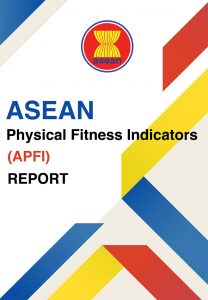- ABOUT ASEANThe Association of Southeast Asian Nations, or ASEAN, was established on 8 August 1967 in Bangkok, Thailand, with the signing of the ASEAN Declaration (Bangkok Declaration) by the Founding Fathers of ASEAN: Indonesia, Malaysia, Philippines, Singapore and Thailand. Brunei Darussalam joined ASEAN on 7 January 1984, followed by Viet Nam on 28 July 1995, Lao PDR and Myanmar on 23 July 1997, and Cambodia on 30 April 1999, making up what is today the ten Member States of ASEAN.Menu
- WHAT WE DO
ASEAN organs always strive to achieve ASEAN’s goals and objectives, the Secretary-General of ASEAN and the ASEAN Secretariat shall be functioned as coordinating Secretariat to help facilitate effective decision-making withing and amongst ASEAN bodies. In addition, each Member State shall appoint a Permanent Representative to liaise with Secretary-General of ASEAN and the ASEAN Secretariat
Menu - WHO WE WORK WITH
ASEAN shall develop friendly relations and mutually beneficial dialogues, cooperation and partnerships with countries and sub-regional, regional and international organisations and institutions. This includes external partners, ASEAN entities, human rights bodies, non-ASEAN Member States Ambassadors to ASEAN, ASEAN committees in third countries and international organisations, as well as international / regional organisations.
Menu - OUR COMMUNITIES
The rodmap for an ASEAN Community (2009-2015) was declared by the leaders in 2009. The ASEAN Community, anchored on three community pillars: Political-Security Community, Economic Community, Socio-Cultural Community was launched in 2015. The ASEAN 2025: Forging Ahead Together was introduced in 2015 as a Post-2015 Vision. It comprises the ASEAN Community Vision 2025, the ASEAN Political-Security Community Blueprint 2025, the ASEAN Economic Community Blueprint 2025 and the ASEAN Socio-Cultural Community Blueprint 2025
Menu - SITEMAP

Abstract
Thailand has kindly volunteered to lead the development of the ASEAN Physical Fitness Indicators (APFI) as one of the activities to support the Key Element 3 of the ASEAN Work Plan on Sports 2016-2020. The APFI serves as guidelines to gather information about population and/or health system performance and characteristics in ASEAN. Thailand proposed activities under APFI which include expanding the ASEAN network to engage relevant stakeholders in the initiative, establishing a working group to formulate the concept and identify fitness indicators, preparing the report, publishing and disseminating the report on fitness indicators to relevant ASEAN sectoral bodies and relevant stakeholders as well as ensuring the report is accessible online.
Due to the crisis of the Coronavirus (COVID-19) pandemic, All AMS data collection plans may be affected by their government restrictions and bans on mass gathering events to prevent and control the spread of COVID-19; these matters cause inconvenience for AMS to implement data collection at the national level to submit them to Thailand. Therefore, the APFI data collection implementation during the pandemic seems inconvenient to follow the project timeline as Thailand has proposed in the SOMS-10 Meeting. Nevertheless, Thailand has offered to bring APFI project contained in the next ASEAN Work Plan on Sports 2021-2025 implementation, which the SOMS-10 Meeting acknowledged and agreed with Thailand’s proposal.
More Details
| Author | |
| Barcode | <000000011641> |
| Edition | |
| Place | |
| Publisher | |
| Year | |
| Classification | Socio-Cultural – Senior Officials’ Committee for ASCC Council (SOCA) |
| Call Number | |
| ISBN | |
| Language | English |
| Content Type | Text Book |
| Media Type | printed |
| Number of copies |





